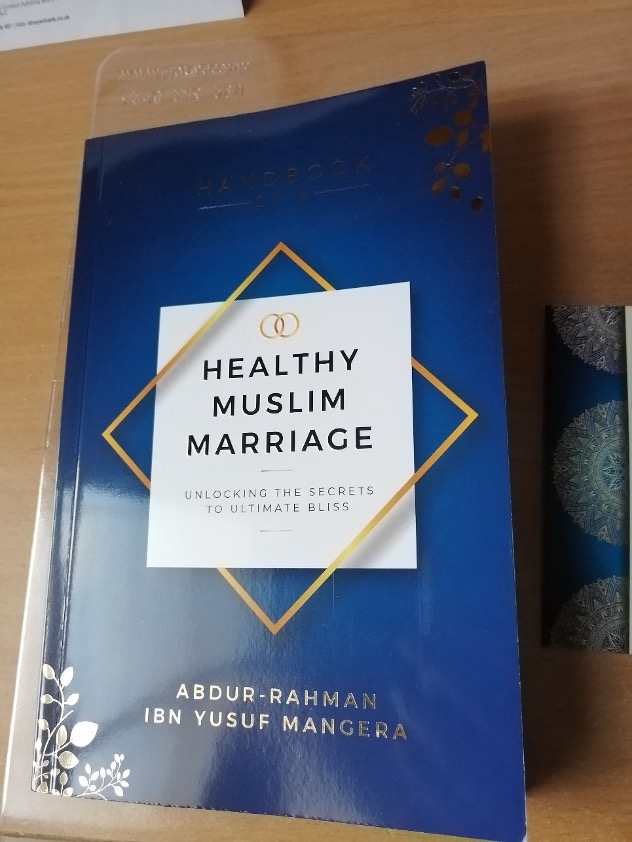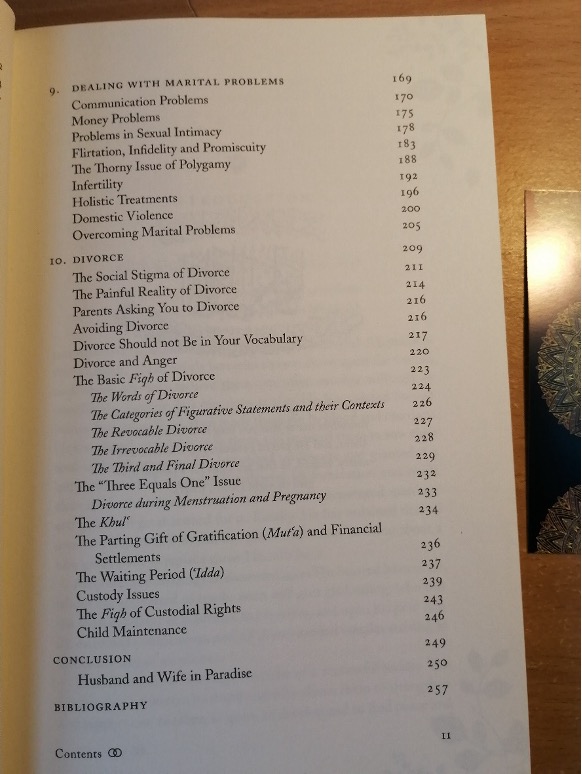Review by Mawlana Abu Asim Badrul Islam
Title: Handbook of a Healthy Muslim Marriage
Author: Abdur-Rahman ibn Yusuf Mangera
Editor: N/A
Genre: Islamic marriage guide/fiqh of nikāḥ
Publisher: White Thread Press (London)
Year of publication: 2019 (1st edition)
Number of pages: 262
THIS IS BY FAR the best book that I have seen on the subject. Out of the few that are generally available in the market, some of which I have browsed through previously, this one stands out for its depth, genuineness, scholarship, many years of experience of the author as an imam and marriage counsellor, mentor, mufti and academic. It is thoroughly referenced with classical Islamic works and mainstream sources with a highly skillful fusion of the Islamic-academic and the practical realities of the ‘worldly’. It comprises 262 pages of essential advice for those planning to get married, as well as those who are already married (including those who have been married for a long time!). I only read it because I received it as a random gift. A quick glance at the contents page led my curiosity to read some sections. This then led me to read more – eventually ending up reading the whole book!
As with his other books, Shaykh Dr. Abdur-Rahman Mangera has produced a high-quality work, which is impressively researched. It is obvious that he has invested a lot of time in authoring this book. The breadth of classical Islamic Arabic references of tafsīr, ḥadīth and fiqh that he has accessed, and applying these to his years of experience and the reality on the ground in our modern troubled world where the institution of marriage and the family unit is becoming more and more a thing of the past – at least, in the western world – makes this a fascinating read. He explores and shares his knowledge and experience of the good, bad and the ugly regarding marriage. Ranging from laws of marriage (fiqh/aḥkām al-nikāḥ) to the actual conducting of the nikah ceremony, preparation for marriage, criteria and qualities to seek in a spouse, the actual ‘searching’ for the dream spouse, customs and practices relating to the wedding event, dealing with the in-laws, privacy and intimacy, having and raising children, the western problem with multiple wives (up to four at any one time – to be precise), when marriages do not work out – disputes and disagreements between the husband and wife, financial problems, emotional problems, differences in outlook and priorities in life, infertility, domestic violence, the ugly issue of talaq (divorce) and complications even when having to part their ways as a last resort … and a lot more is thoroughly explored.
In the multitude of topics explored, some cultural norms, values and practices are critically analysed. The author presents some of his personal views, which other scholars may not fully agree with, or may articulate differently.
The book ends on a positive note – the husband and wife in Jannah. Overall, an excellent read that is highly beneficial – especially, for those who are hoping to marry, or are still in the first decade or so of their marriage.
Abu Asim Badrul Islam
Northampton, ENGLAND
14 Jumāda ‘l-Ᾱkhirah 1445/28 December 2023

Front cover.



List of contents.

